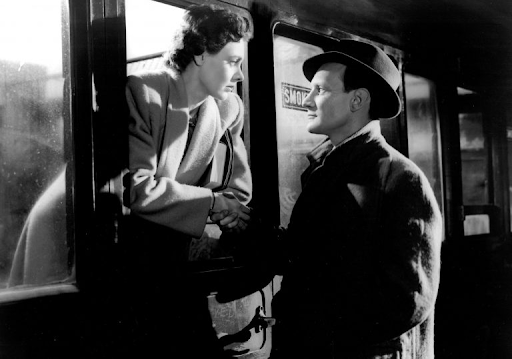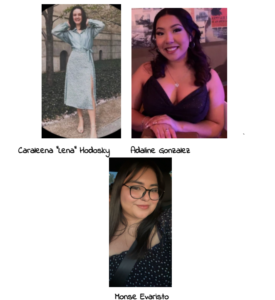The Fleeting Eternal Intrusions of Brief Encounter (1945)

Image Courtesy of Little White Lies
By Dean Robbins
It is no spoiler to say that the central relationship in David Lean’s 1945 classic Brief Encounter has no happily ever after. The movie’s first scene tells us the ending. In a crowded train station refreshment bar, two people, a man, and a woman stare longingly and sadly at each other, while a loud, rude woman enters and talks incessantly. The man leaves, causing the woman to stare into nothingness as the rude woman continues to talk. As the woman from the train station comes home dejected and sits in a chair across from her husband, time rewinds.
Within the first scene, we are given a mystery and an entry point. The loud, rude woman, who is named Dolly Messiter (Everley Gregg), intrudes upon the situation just like the viewer intrudes upon the story. In a way, we as the viewer are interrupting. Brief Encounter is about this—how we intrude upon each other’s lives and leave permanent impressions.
Brief Encounter, based on a play by Noel Coward, who also wrote the screenplay, is a deceptively genius film. Many movies have been made about relationships that are intense and, well, brief. However, upon further inspection, one can begin to peel back the many layers that form this film.
After the prologue mentioned previously, the entire film takes place within the consciousness of the main character, Laura Jesson (Celia Johnson). Throughout the film, Laura is mentally confessing her infidelity to her husband. As she narrates the film, we are not just watching a brief philanderous love, but we are viewing it through Laura’s mind. This becomes even more complex when another layer is added to the narration: not only are we viewing it through Laura’s mind, but we are viewing her recollection of it as she explains it to another person. She is constantly explaining the rationale behind her decisions to her husband. Within this complex construct, the relationship is not only recounted but the viewer is able to see how it impacts a person on a psychological level.
Laura Jesson meets Dr. Alec Harvey (Trevor Howard) accidentally. While standing on the train platform, Laura gets a hard piece of dust in her eye. This piece is blown into her eye by a passing train, itself a representation of the film’s larger themes. An unexpected event, born out of chance, ends up becoming the incitement for something quite significant. She goes into the refreshment bar to try and get it out, and Dr. Alec Harvey helps her. There is no love at first sight.
On another day, they coincidentally run into each other on their daily errands. They say hello and pass along. Later that day, Laura finds herself thinking about him before pushing him out of her mind. Several days later, they meet again and the rest…is best left unsaid for those who have not seen the film.
Director David Lean, best known for his epics like Lawrence of Arabia (1962) or Doctor Zhivago (1965), goes in the opposite direction with Brief Encounter. Lean imposes an immense amount of control, precision, and intimacy upon the environment. Director of photography Robert Krasker shoots the scenes in a level-headed way that leads to a few moments of insanity that thus leave a greater impact. One climactic scene sees the camera begin to tilt to the side, a move that seems surrealistic in comparison to everything before it. The emotional restraint held for the majority of the runtime leads to some absolutely devastating sequences.
Notoriously harsh film critic Mike D’Angelo, who writes for the AV Club, gave the film an exceedingly rare 100/100 score. He said of the film’s portrayal of love: “certainly it’s never been more exquisitely realized than it is here, in all its glory and misery.”
Whether we like it or not, we are constantly pulled into others. We intrude upon each other every day. Most of those intrusions will be forgotten quickly. A select few will stay with us for our whole lives.
Near the end of the film, Laura says, “There’ll come a time in the future when I shan’t mind about this anymore when I can look back and say quite peacefully and cheerfully how silly I was. No, no, I don’t want that time to come ever. I want to remember every minute, always, always to the end of my days.”
Our lives are not entirely our own, they are determined by others. It is in these relations that the deepest and most beautiful meanings are found.







